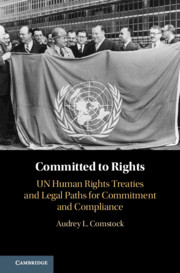Legal scholars continue to revisit historical treaties between Western and non-Western nations to challenge long-standing accounts of non-Western peoples’ engagement with international law. Following this trend, new scholarship has stressed African agency in Euro-African treaty-making. However, legal scholars have generally overlooked African perspectives, pointing to a lack of sources. Focusing on nineteenth-century treaty-making between France and the polities of the Western Sudan in West Africa, this article excavates African perspectives through a novel reading of Euro-African treaties in an African context. This reading analyses treaties within the Western Sudan’s broader diplomatic corpus in both French and Arabic. By focusing on markers of translation, transcription, and negotiation left on different copies of treaties, this method brings to light arguments and practices that have been obscured in published European-language versions. Reading Franco-Sudanian treaties in a Sudanian context reveals that different norms governed the ratification of treaties in the Western Sudan and Europe. Treaties that scholars have long considered unratified were in fact ratified according to Western Sudanian norms, which designated the governor of French Senegal rather than the French president as the official competent to ratify treaties for France. However, when French officials sought to use treaties to claim sovereign rights in West Africa against Great Britain, they pressed the president to ratify them again. Presidential ratification thus served to transpose Franco-Sudanian treaties from an African to a Western normative order. Uncovering the African origins of Euro-African treaties thus reveals their differential operation across autonomous inter-polity orders.

